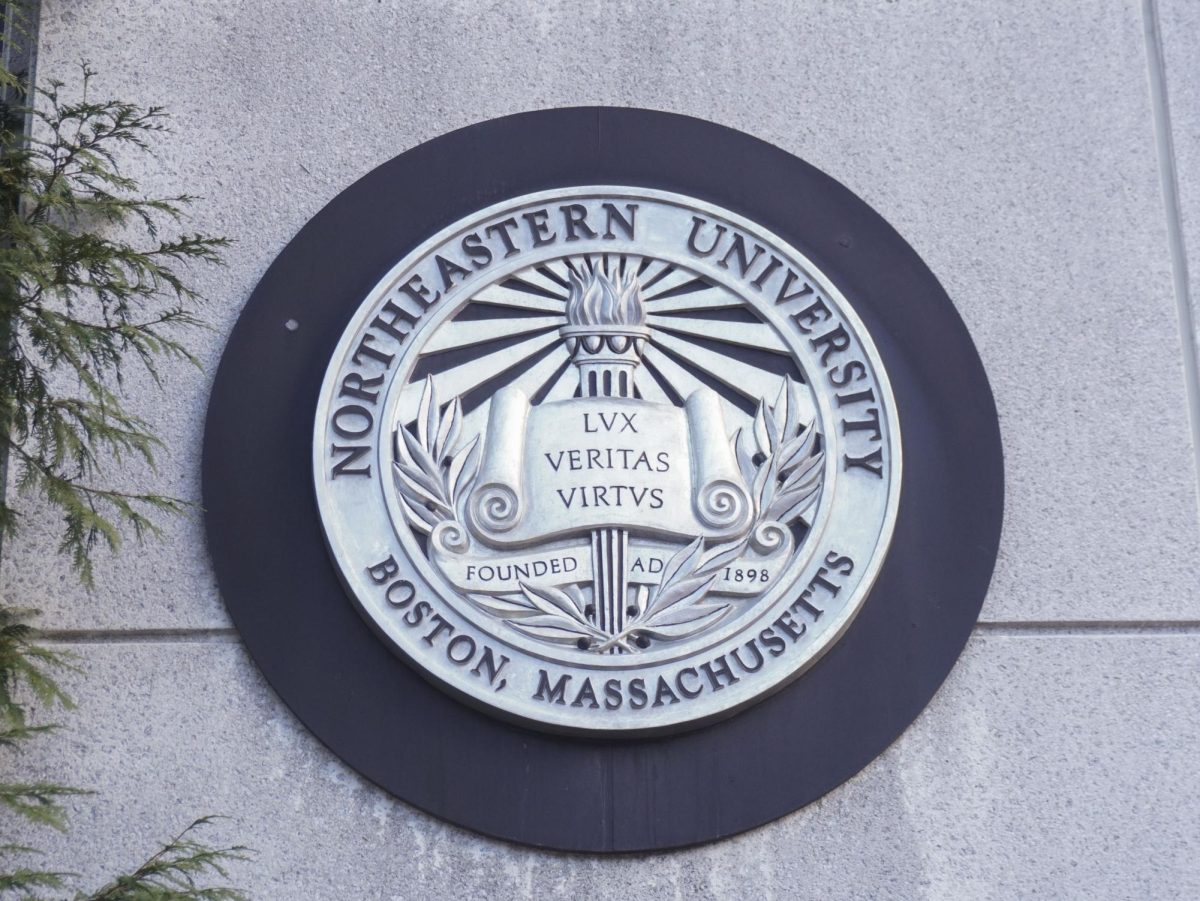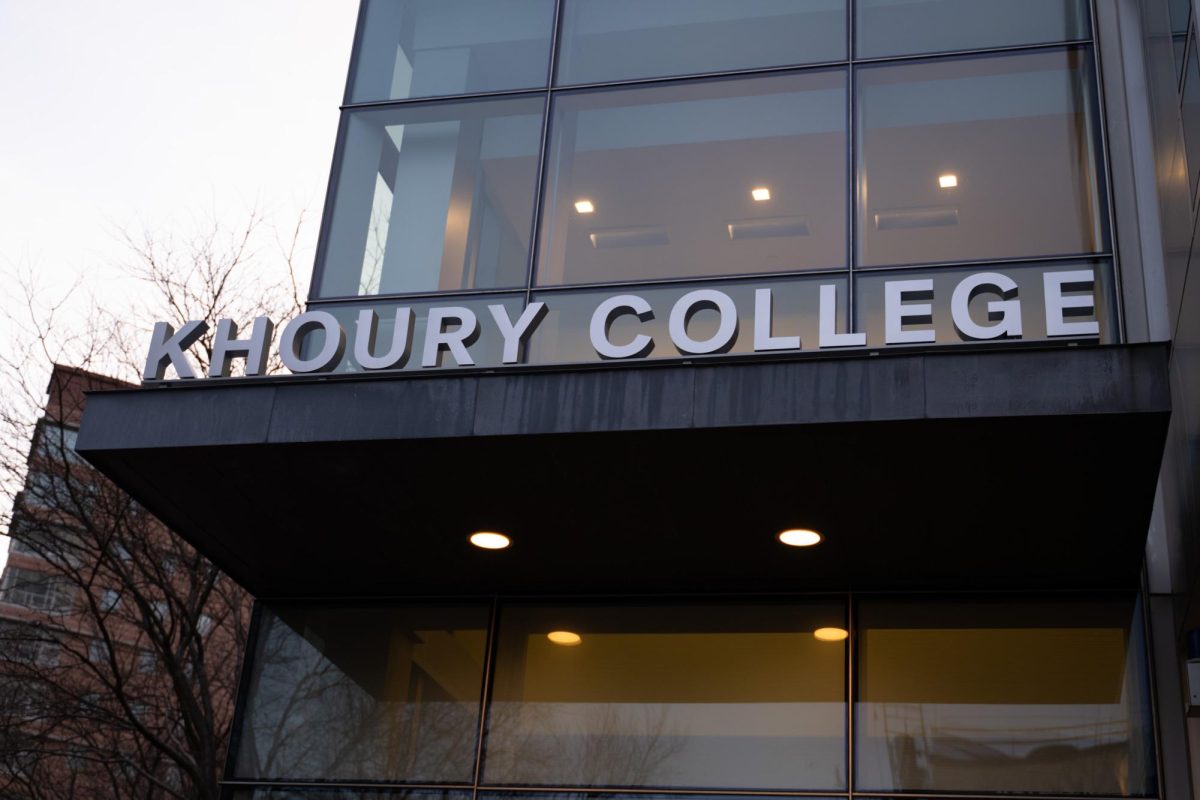A 5.5 percent tuition increase was one of many issues outlined in the 2003-04 budget proposal presented to the Faculty Senate Monday. The increase follows the trend of other private universities in the United States, and is not an effect of semester conversion, Senior Vice President of Administration and Finance Larry Mucciolo said.
Under semester conversion, Mucciolo promises that the total cost towards a degree will be the same, though the breakdown may be different.
“Tuition changes from year to year, whether or not the calendar changes,” he said.
The presentation indicated that the current $9,100 per quarter would equal $12,133 per semester through the course of graduation because fewer semesters are needed than quarters to graduate. The subsequent tuition increase would bring the total per semester to $12,800.
Mucciolo believes that the tuition increase will have no effect on the number of high school seniors who choose Northeastern as their avenue of higher learning.
“I think [the yield rates] are stable, they have been stable and they might even be better,” he said.
The administration is expecting 17,853 applicants for the 2003-04 year, with a 54.1 percent acceptance rate, 9,662 students. They expect a class of 2,802 to enroll, a 29 percent yield rate, with a mean SAT score of 1162.
In 2002, Northeastern received 17,037 applications, with an acceptance rate of 61.4 percent, or 10,454 students. Enrollment reached 2,973, a yield rate of 28.4 percent, with a mean SAT of 1153.
In addition, the university believes that the tuition hike will not affect its retention rates, an important category in reaching the top 100 universities on U.S. News and World Report’s list of top U.S. colleges.
“We look forward to growing and improving retention rates,” Mucciolo said.
The increase in tuition will be used to fund several other things in Northeastern’s proposed total budget for next year, a 4.5 percent increase from last year at $427.6 million. The priorities of the budget focus on financial aid for students, faculty and staff compensation, key academic needs, enrollment management and institutional advancement needs.
The administration plans to increase financial aid by seven percent to maintain its current level of assistance through the tuition increase.
“The university’s goal is to maintain consistent financial aid for for students throughout their NU career,” Provost Ahmed Abdelal said. “We want to make it as easy as we can for students to continue with their education at Northeastern.”
A $5.3 million merit pool for faculty is included in the budget, as well as $1.2 million for market adjustment and a bonus pool. They plan to spend $900,000 on faculty positions, $200,000 to hire new lecturers and graduate teaching assistants in order to reduce class sizes, $250,000 on enrollment shifts, $100,000 on the honors program and $650,000 on new graduate programs to cover key academic needs.
Class sizes will be reduced from an average of 25 to an average of 19, with classrooms made available through extra course sequences.
To provide for new and continuing initiatives, $800,000 is allocated for faculty development, assessment of teaching effectiveness and program evaluation, student support and college operational budgets.
Cooperative education staffing will cost $162,000, with the addition of four new positions in the department, library acquisitions will run $150,000, and $1 million is being set aside to complete West Campus buildings G and H.
In regards to increases in both tuition and financial aid, one senator asked,”Why do we charge the students so much more just to return the money?”
Mucciolo replied with, what he called a Robin Hood analogy. He said the money is received and then used to provide aid to those who have more financial need.
“Universities virtually everywhere have a sticker price and then they provide financial aid,” he said. “The greater need you have, the poorer you are, the more aid you get.”
He also asserted that some financial aid is based on academic performance. Mucciolo and Abdelal will meet with various campus groups including the Student Government Association and the Administration Advisement Council before their open forum Feb. 27.
The proposal will then be presented to the Board of Trustees in March for its final approval.
While historically, few changes are made between the proposed and final budgets, Mucciolo assured that “Until the board adopts it [the budget], we don’t have a budget.”










